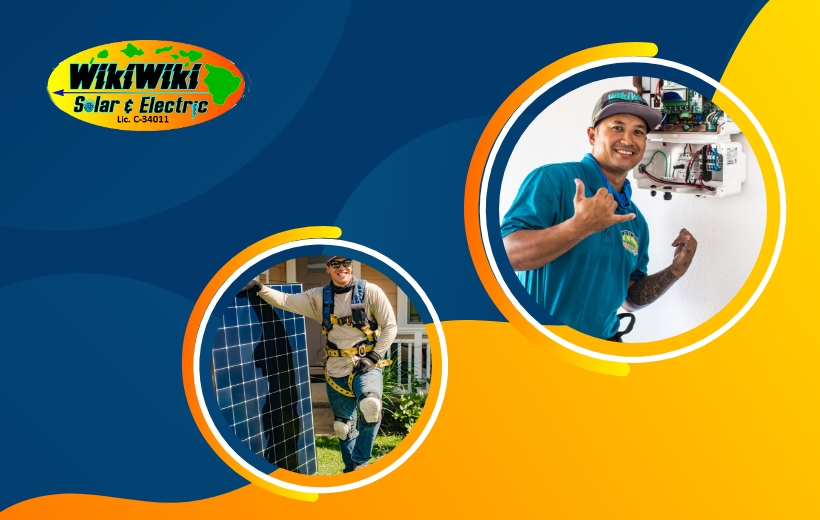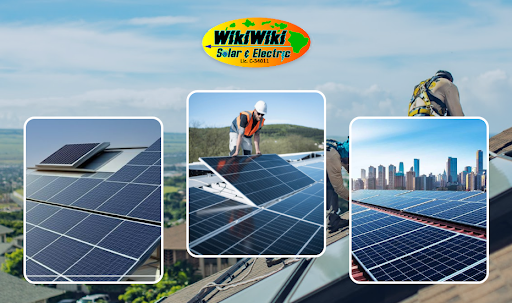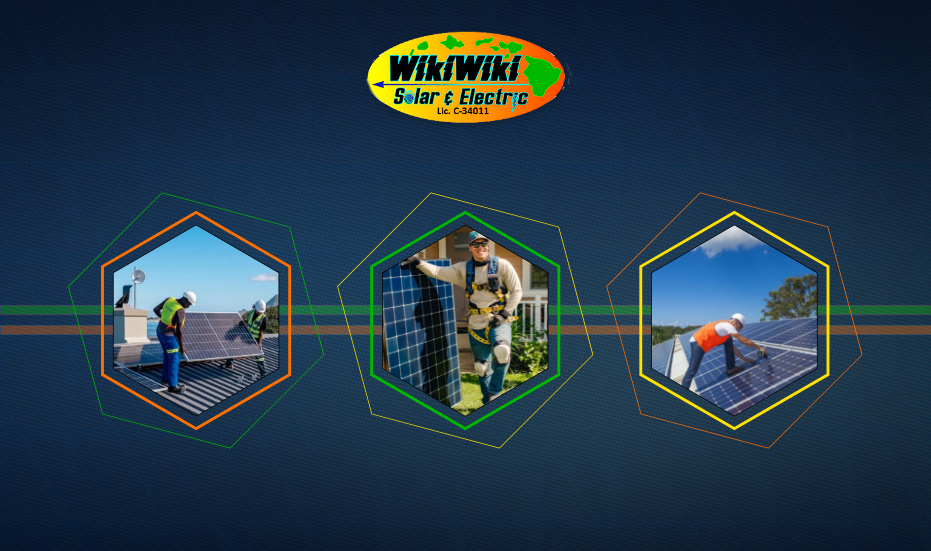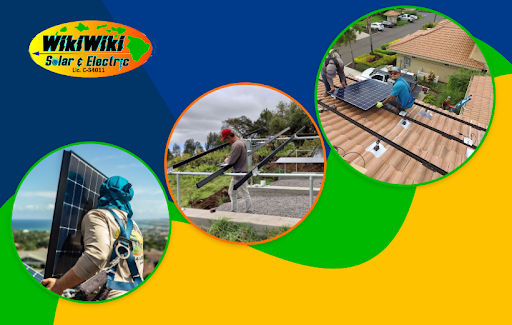When selecting a Maui solar system, many homeowners unintentionally make choices that increase costs, reduce efficiency, provide unfavorable warranties, or even risk system failures. Maui’s unique climate and unpredictable energy grid requires careful selection of equipment and your installer to ensure your solar investment pays off, delivering clean, reliable energy for decades to come.
Here’s a guide to help you sidestep the most common pitfalls and make a smart choice for your Maui solar system
- Assuming All Solar Installers Understand Maui’s Unique Climate:
Not all solar companies are knowledgeable about Maui’s distinct environmental conditions. Working with a provider familiar and experienced with Maui-specific installations, like WikiWiki Solar & Electric, ensures your solar system is professionally designed for the island’s unique microclimate and utility requirements/limitations.
- Underestimating Energy Storage Requirements:
Maui’s electricity grid can be unpredictable in the best of times and the possibility of a power outage can become downright scary if/and when a Public Safety Power Shutoff (PSPS) is announced, making energy storage systems a critical addition to your solar system design. Solar battery storage not only keeps your home running during outages, it also maximizes the reliability and functionality of your Maui solar system investment. Energy storage is often used during the day to supplement PV energy and at night to offset nighttime energy consumption.
- Choosing the Wrong System Size Without Considering All Factors:
Many homeowners base their system size on current energy needs, overlooking seasonal variations and future demand. Would you like to use the a/c or heater more often? Is your family growing? Do you plan on adding an electric vehicle? How about heating your pool or spa? When planning your Maui solar system, account for your anticipated energy usage to ensure your system meets your energy “wants and needs” year-round and into the future.
- Comparing Solar Systems that May Provide Vastly Different Warranties:
Solar company warranties and equipment warranties are not equal. Did you know that the majority of Maui solar installers do not include labor in their warranty? Did you know that many solar equipment manufacturers do not include labor in their warranties either?? Should a proposal that offers a 3-Year warranty that does not include labor be equal in value to a proposal that offers a 10-Year warranty that includes labor? When comparing solar proposals, besides the cost of the solar system purchase price, warranty value should also be considered. Let’s face it, the 3-year warranty system will most assuredly cost substantially more during its lifetime than the 10-year warranty system. WikiWIki Solar provides a 10-Year contractor warranty and 25-Year equipment warranties that INCLUDE Labor!
- Overlooking Maui’s High Salt Exposure on Solar Equipment:
Maui’s tropical, oceanic climate means your solar equipment is constantly exposed to salty air, which can cause panel failure if it’s not intended for use in coastal environments. Look for systems capable of withstanding our salty environment with protective coatings on panel flanges that withstand Maui’s conditions and prolong the lifespan of your solar investment. Check panel warranties to ensure there are no “exclusions” for our salty Maui environment.
- Ignoring the Need for Hurricane-Resistant Mounting:
Maui’s climate includes high winds and potential hurricanes. A secure installation with hurricane-rated mounting hardware is essential for your Maui solar system to stay resilient during extreme weather. Code requirements typically specify the racking (mounting) systems to provide a 110-mph wind uplift resistance.
- Skipping Proper Panel Placement and Roof Suitability Checks:
To capture maximum solar energy, panel placement must factor-in Maui’s solar potential and weather patterns specific to your property. Do you have trees that may interfere with solar production? Roof suitability is also critical; older roofs may not have proper decking or roof structure strength which may require additional roof procedures before a solar system can be installed. Legitimate solar installers will typically perform a FREE (site analysis) assessment as part of the proposal process to ensure your roof is ready to support a Maui solar system effectively.
- Accepting a Proposal that may Not Work with Your Homes Electrical System:
Most solar providers on Maui believe having a sales representative look at your electrical system is a wise choice, since they’re there, why not have them inspect your electrical system too? Unfortunately, the majority of solar sales reps on Maui are only trained to sell, they know little if anything about your homes’ electrical system. In fact, since a sales rep is not typically a qualified electrician, insurance rules prohibit them from even touching your electrical system components. A qualified solar installer should always provide you with a proposal based on a qualified electrician’s assessment of your electrical system.
- Prioritizing Price Over Quality:
While price matters, choosing the cheapest option can often result in low-quality equipment with warranties unsuited to Hawaii’s tropical conditions. Look for reputable brands known for quality, durability and offering a great warranty, so your Maui solar system will deliver consistent savings and reduce the potential for expensive repairs during the systems’ lifetime.
- Not Factoring-In Substantial Federal and State Tax Incentives:
When purchasing a solar system on Maui, don’t underestimate the value of available tax incentives. Tax credits are not deductions to your income, they are 1-to-1-dollar credits toward your income tax liability. With Federal tax credits worth 30% of the systems’ purchase price and State credits worth up to 35% of the systems’ purchase price, up to 65% of the solar systems’ purchase price can be recovered just by utilizing the available tax credits. In most instances, full solar system ROI can be achieved in 4 to 6 years.
The Bottom Line: Selecting the right Maui solar system takes expertise. At WikiWiki Solar & Electric, we bring local experience to every installation, helping you choose the right high-performance solar system that’s perfect for our Maui environment. Whether you want to cut electricity costs, or, just have a solar system that functions when the grid goes down, our team ensures a smooth, successful transition to solar. Contact us today to explore our tailored solar solutions for your home or business.






